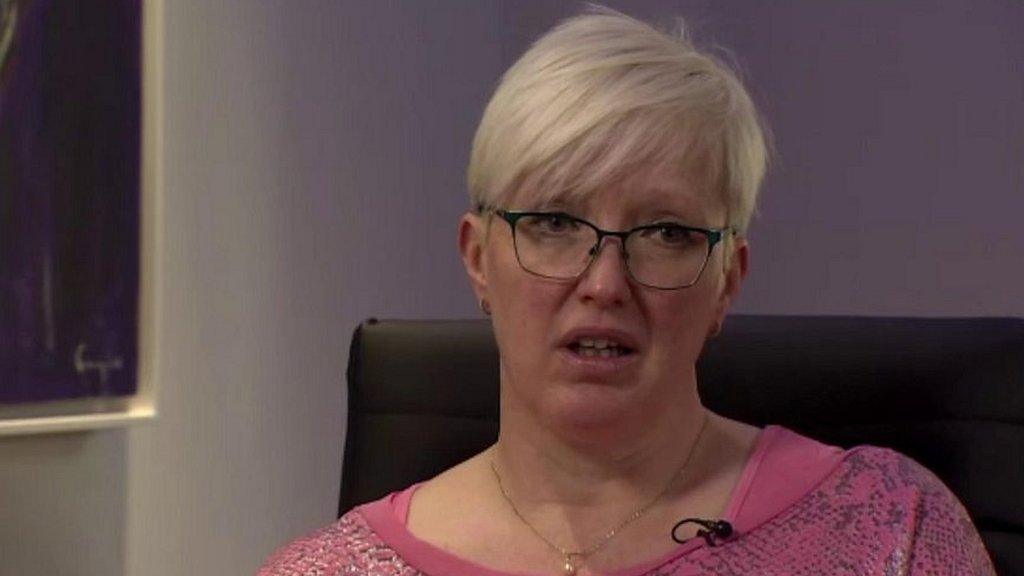Ballymena Livestock Market gets two welfare notifications in six months
- Published
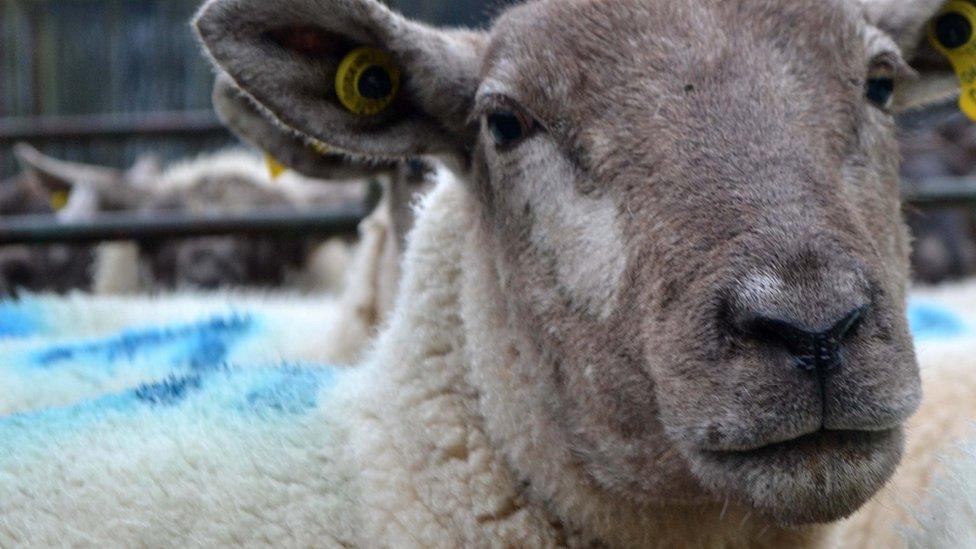
By law, sheep may be left overnight at a livestock market but must have bedding, water and food (stock photo)
Ballymena Livestock Market said it received two notifications about animal welfare in the last six months from the Department of Agriculture and Environment (Daera).
It comes after it emerged that a former government vet raised concerns in 2017.
Dr Tamara Bronckaers said she saw sheep kept at the market overnight with no food, water and little bedding.
By law, sheep may be left overnight at a livestock market but must have bedding, water and food.
Daera told The Nolan Show that after an initial warning letter was sent in 2017, officials conducted nine more unannounced inspections of the market in the period up to spring 2018.
"The inspections confirmed that the livestock market operator had taken and maintained corrective actions and no welfare issues were detected during these nine inspections," the statement said.
However, the market told The Nolan Show that it had received two notifications from the department in the last six months.
It said it had been informed "of issues relating to overnight accommodation and the provision of feed for sheep".
"These notifications occurred following routine inspections by Daera and no enforcement action was required by Daera on either occasion," it said.
"Steps were taken immediately following each notification. This included meeting with the relevant staff to reinforce the importance of adhering to our work practices and procedures when overnight accommodation is unavoidable."
BBC News NI has contacted Daera for comment.
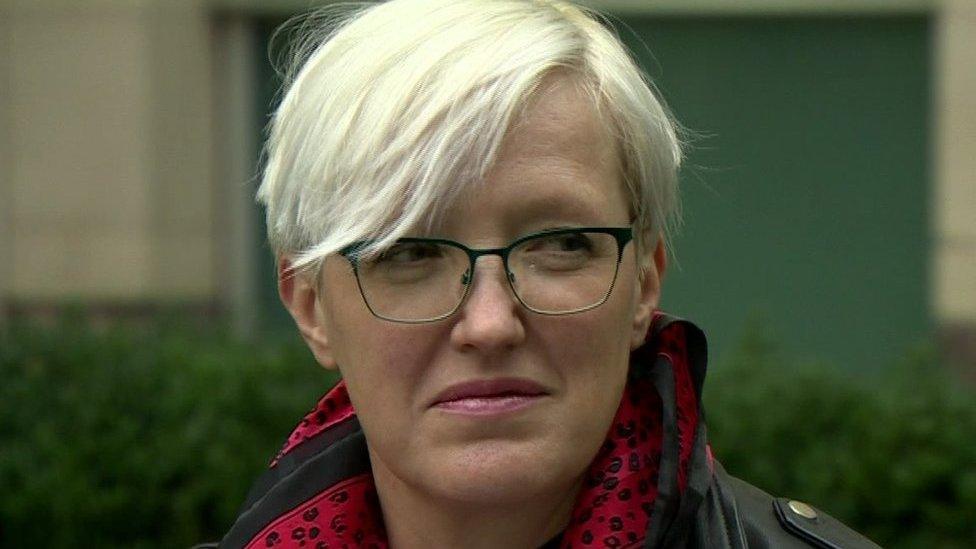
Dr Bronckaers said the past few years had been "harrowing"
Former government vet Dr Bronckaers, who received a £1.25m settlement from the department, resigned in 2018.
Concerns she raised about animal welfare and failures in traceability in the meat supply chain were not acted on.
An industrial tribunal in September 2021 found she had been constructively dismissed.
The department dropped its appeal against that decision earlier this month.
On Monday, it issued a statement in which it apologised to Ms Bronckaers for the "hurt and distress caused".
In a statement issued by her solicitors, McCartan Turkington Breen, Dr Bronckaers said the last few years had been "extremely harrowing", and she could now "move on in the knowledge that I did what was right".
Dr Bronckaers had worked at the department for 19 years before she resigned in February 2018.
The industrial tribunal heard she was regarded as an expert on livestock market legislation.
Her responsibilities included livestock markets, biosecurity and zoonoses - diseases that can move between animals and humans.
Dr Bronckaers had identified serious failings in animal welfare at some livestock markets, and the abuse of a process called "deleted moves".
That was a process whereby a dealer would buy an animal, without having someone to immediately sell it on to.
The move was allowed to be deleted when the animal did not leave the market before being sold on.
But Dr Bronckaers found out that the animal would sometimes leave the market to join the dealer's herd for a period of time before a buyer was found, and that move would then be deleted from the section of the tracing system that was visible in markets.
It remained in the section visible at departmental level.
Animals with fewer moves in their history are more valuable.
That, Dr Bronckaers claimed, could affect the traceability of meat within the food supply chain and have an impact on the spread of disease in cattle, in particular tuberculosis.
She told the tribunal that 4,800 to 5,000 animals were having their moves deleted out of livestock markets every year.
- Published22 April 2022
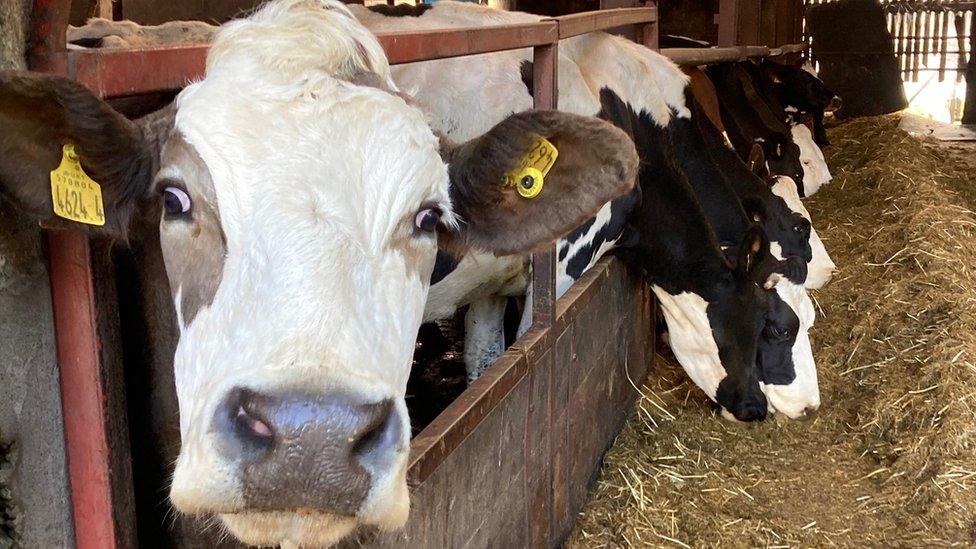
- Published24 September 2021
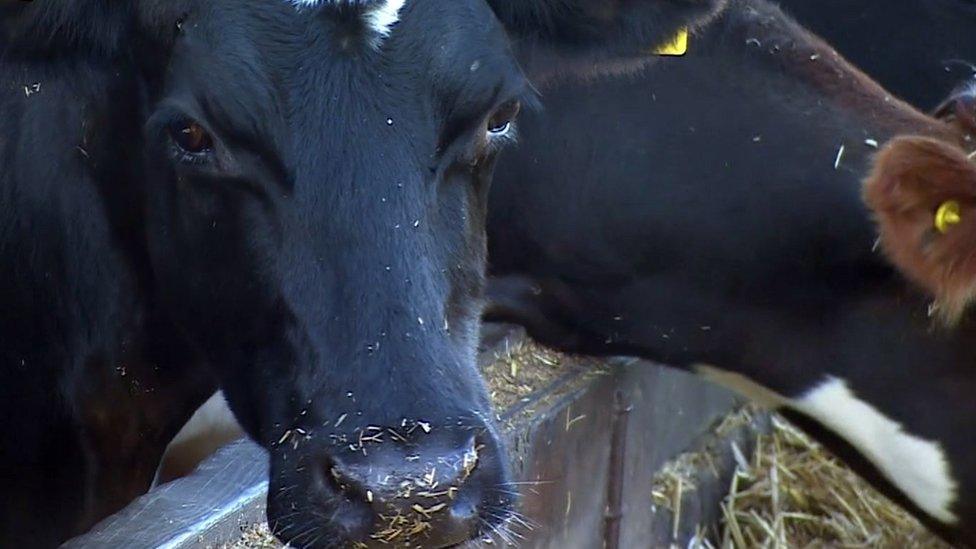
- Published25 April 2022
